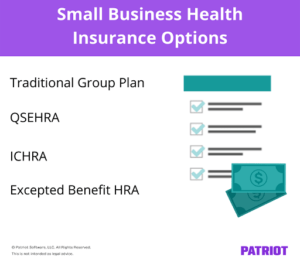In today’s competitive business landscape, offering health insurance to employees is not just a perk but a necessity for small businesses. It can help attract and retain top talent, boost employee morale, and contribute to a healthier and more productive workforce. This comprehensive guide will delve into the world of health insurance for small businesses, covering everything from the benefits and options available to the challenges you may encounter.
The Importance of Health Insurance for Small Businesses
- Attracting Top Talent: Small businesses can compete with larger corporations by offering competitive health insurance packages, making them more attractive to potential employees.
- Employee Retention: Health insurance can increase employee loyalty, reducing turnover and the associated costs of hiring and training new staff.
- Enhancing Productivity: Healthy employees are more productive, reducing absenteeism and increasing overall efficiency.
- Legal Requirements: Depending on your location and the size of your business, you may be legally obligated to provide health insurance coverage.
Types of Health Insurance Plans for Small Businesses

When it comes to health insurance for small businesses, you have several options to consider:
Group Health Insurance:
-
- Allows you to offer a single insurance plan to all eligible employees.
- Typically more cost-effective than individual policies.
- Employees share the cost with the employer.
Health Reimbursement Arrangement (HRA):
-
- A tax-advantaged benefit that reimburses employees for out-of-pocket medical expenses.
- Provides more flexibility and control over costs for both employers and employees.
Health Savings Account (HSA):
-
- Combines a high-deductible health plan with a tax-advantaged savings account.
- Encourages employees to save for future medical expenses while reducing premiums.
Self-Funded Insurance:
-
- The employer takes on the financial risk and pays for employee medical claims directly.
- Offers more control and customization but also carries greater financial risk.
Cooperative Health Insurance:
-
- Small businesses join together to form a purchasing cooperative, which can lead to cost savings through economies of scale.
Factors to Consider When Choosing a Health Insurance Plan
- Budget: Determine how much you can allocate to health insurance while still maintaining your business’s financial health.
- Employee Needs: Consider your employees’ age, health, and the type of coverage they require.
- Provider Networks: Ensure the plan includes doctors and facilities that are easily accessible to your employees.
- Coverage: Evaluate the comprehensiveness of the plan, including preventive care, hospitalization, and prescription drug coverage.
- Deductibles and Copayments: Understand the cost-sharing responsibilities between your business and your employees.
- Compliance: Be aware of any legal requirements and regulations governing health insurance in your area.
Overcoming Challenges
- Cost Concerns: Small businesses may struggle with the financial burden of providing health insurance. Exploring tax credits and subsidies can help.
- Employee Eligibility: Determining which employees are eligible for coverage can be a complex process, but it’s crucial to remain compliant with the law.
- Administering the Plan: Properly managing the chosen health insurance plan, including enrollment and claims processing, can be challenging.
Health insurance for small businesses is a vital component of creating a competitive and thriving workplace. It benefits both employers and employees by attracting top talent, fostering loyalty, and promoting a healthier, more productive workforce. By understanding the various insurance options available, considering key factors, and addressing potential challenges, small businesses can navigate the world of health insurance with confidence and ensure the well-being of their employees while securing their own future success.


